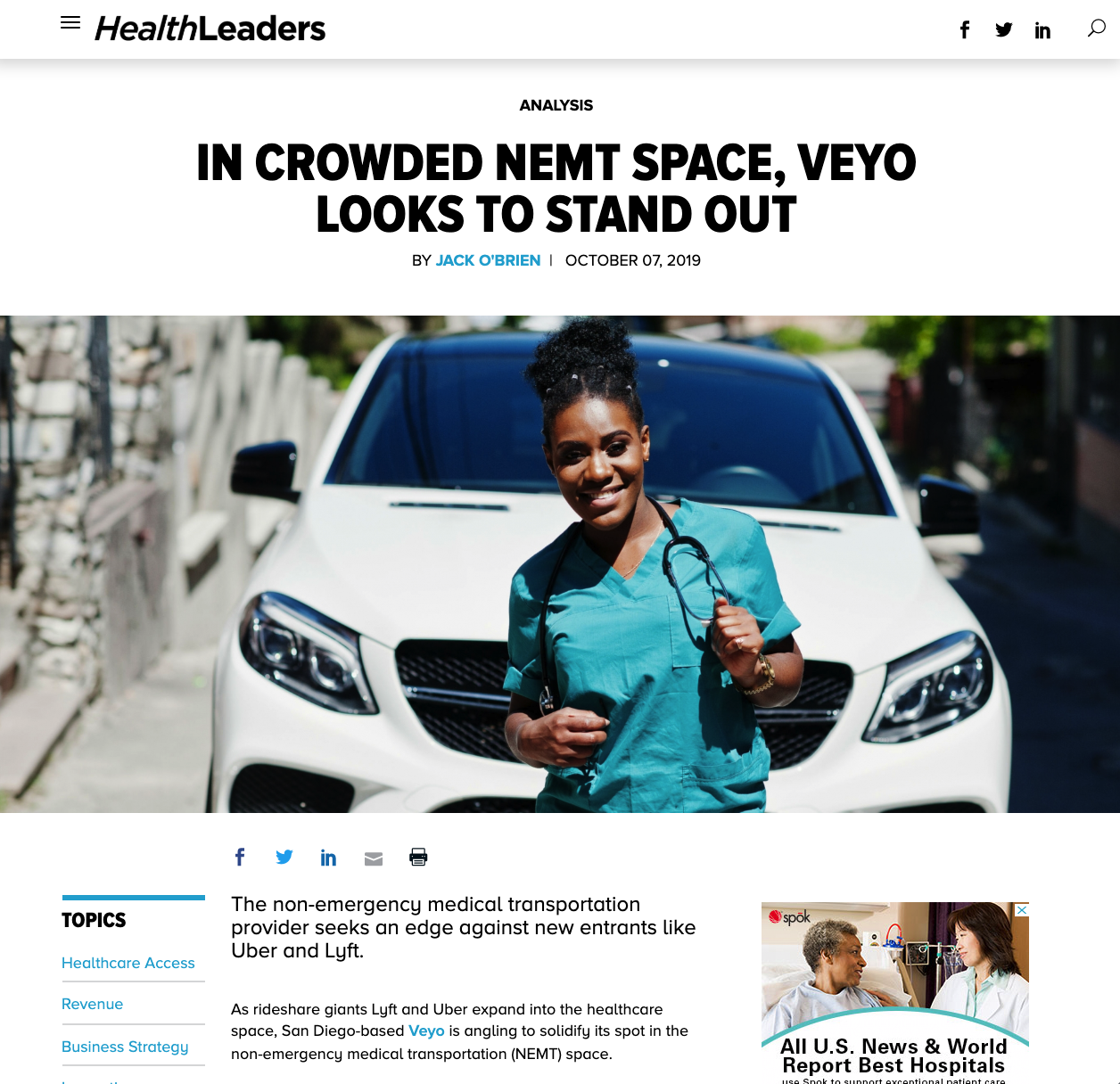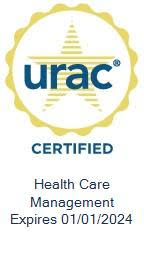Veyo in HealthLeaders: In Crowded NEMT Space, Veyo Looks to Stand Out
October 14, 2019
Veyo was recently featured in a HealthLeaders article highlighting how Veyo is seeking an edge against new entrants like Uber and Lyft. The article was written by Jack O’Brien and can be found here.
——-
“The non-emergency medical transportation provider seeks an edge against new entrants like Uber and Lyft.
As rideshare giants Lyft and Uber expand into the healthcare space, San Diego-based Veyo is angling to solidify its spot in the non-emergency medical transportation (NEMT) space.
The rideshare company primarily focuses on servicing Medicaid beneficiaries, a population that typically lacks reliable transportation options.
Improving patient access to care through ridesharing apps, by way of discounted or free rides, has become a focus for executives at provider and payer organizations as well as lawmakers at the state and federal level.
Josh Komenda, president of Veyo, told HealthLeaders that the company partners with Medicaid and Medicare Advantage plans in seven states, providing more than 30,000 rides per day.
Komenda added that Veyo shares the broader industry excitement about incorporating transportation services to address population health needs.
“We realize the country is on a collision course with rising healthcare costs, there doesn’t seem to be any easy answers,” said Komenda. “Along with a lot of the thought leaders in the health payer industry, people are starting to think more holistically about population health, [social] determinants of health, and access to care. These are things that we can provide for a fairly low cost to dramatically reduce costs and improve outcomes overall.”
While discussing the cost savings associated with NEMT, Komenda cited a 2008 Florida State University study that posited if 1% of trips resulted in avoidance of a hospital stay, then for every dollar the state invested in the program, there was a return of $11.08.
Much like Lyft and Uber, Veyo utilizes independent contractors as drivers for its rideshare network, but Komenda said that all drivers must also meet the company’s healthcare credentialing and training standards.
Veyo drivers have all completed CPR and first aid training, according to Komenda, as well as trained to help patients with disabilities and those with either behavioral or intellectual challenges.
As noted in the S-1 filings for both Lyft and Uber, protecting patient health information and addressing privacy concerns remain top of mind at Veyo. Komenda added that the company’s drivers are trained to comply with HIPAA requirements.
For trips that involve transporting patients in wheelchairs or other specialized services, Komenda said Veyo contracts with third-party commercial fleets.
Looking forward, Komenda said the company has had conversations with provider organizations about potential partnerships but admitted that it is a difficult area to navigate given the widespread fragmentation.
“Right now, we’re set up to serve large customers and large [health] plans, but we’re looking at how we can leverage our network capabilities to serve smaller customers like providers who may only need two dozen rides per day,” Komenda said.
One area where Veyo has the chance to differentiate itself from its competitors is in prescription drug delivery and in-home care, with Komenda broadly describing Veyo as a “healthcare logistics company.”
He added that he is optimistic about Veyo’s odds to compete against larger disruptors entering the space but echoed the sentiments of other leaders in the space who see it as a market likely without one dominant player.
Jack O’Brien is the finance editor at HealthLeaders, a Simplify Compliance brand.
Want to learn more about how we’re using rideshare in NEMT?
Download our latest white paper: Ridesharing in NEMT.




